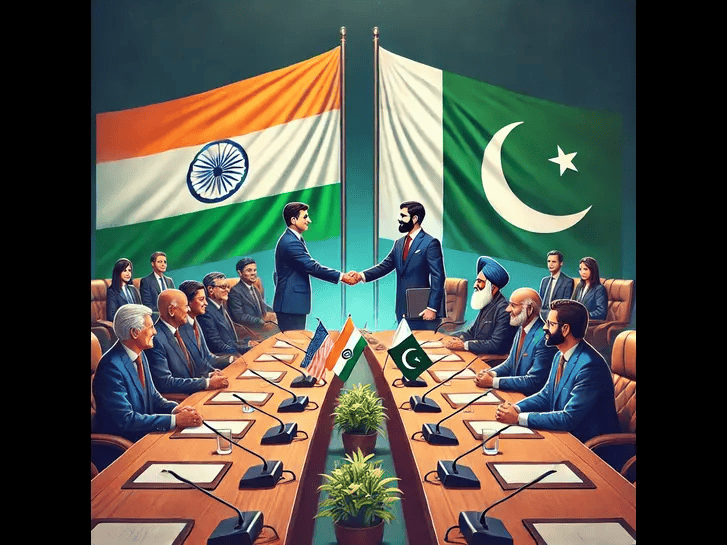Pakistan’s political landscape has been deeply influenced by its military since the country’s inception in 1947. The military, often regarded as one of the most powerful institutions in Pakistan, has played a crucial role in shaping governance, policy-making, and national security decisions. Over the decades, the Pakistani Army has intervened directly and indirectly in politics, resulting in military rule, constitutional amendments, and significant influence over civilian governments.
Historical Context of Military Involvement
The Pakistani Army’s involvement in politics dates back to the early years of the country’s independence. The fragile democratic system, combined with internal instability and external threats, provided the military with an opportunity to step into governance. Some key historical milestones include:
- First Military Coup (1958): General Ayub Khan imposed martial law, marking the beginning of direct military rule in Pakistan.
- Second Military Regime (1969-1971): General Yahya Khan led Pakistan through one of its most turbulent times, resulting in the secession of East Pakistan and the creation of Bangladesh.
- General Zia-ul-Haq’s Era (1977-1988): After overthrowing Prime Minister Zulfikar Ali Bhutto, General Zia introduced an era of Islamization and prolonged military governance.
- General Pervez Musharraf’s Rule (1999-2008): A military coup removed Prime Minister Nawaz Sharif, leading to nearly a decade of military-dominated governance.
These interventions have had lasting effects on Pakistan’s political system and governance structures.
How the Military Influences Governance
The Pakistani Army exercises control over political affairs through various means, even during civilian governments. Some key areas of influence include:
1. Security and Foreign Policy Control
- The military plays a dominant role in shaping Pakistan’s foreign policy, especially concerning India, Afghanistan, and the United States.
- Decisions related to defense, nuclear policy, and counterterrorism operations are primarily controlled by the army rather than civilian leaders.
2. Direct and Indirect Political Interventions
- The military has historically dismissed elected governments through coups, but in recent years, it has adopted subtler tactics such as judicial interventions and political engineering.
- Through intelligence agencies, the army is believed to manipulate elections and influence the rise and fall of political parties.
3. Economic and Strategic Influence
- The military controls significant portions of Pakistan’s economy, including defense industries, real estate, and business enterprises under organizations like the Fauji Foundation and Army Welfare Trust.
- Strategic infrastructure projects, including China-Pakistan Economic Corridor (CPEC), often involve direct military oversight.
4. Media and Narrative Control
- The army plays a key role in controlling media narratives through censorship, pressure on journalists, and influence over mainstream news channels.
- Criticism of the military is often met with restrictions, and pro-military narratives dominate public discourse.
Impact of Military Influence on Democracy
The stronghold of the military on Pakistan’s governance system has both short-term and long-term consequences for democracy and civilian rule:
Positive Aspects
- The military has maintained stability in times of political chaos and ensured national security.
- It has played a role in counterterrorism efforts, maintaining law and order in critical regions.
Negative Aspects
- Weakening of Democratic Institutions: Frequent military interventions undermine the authority of elected governments and discourage political accountability.
- Lack of Civilian Autonomy: Civilian leaders often struggle to implement policies independently due to military oversight.
- Suppression of Dissent: Political opponents and activists critical of the army face repression, impacting freedom of speech.
- Economic and Social Consequences: Military spending often takes precedence over public welfare projects, affecting social development.
Civil-Military Relations: The Way Forward
To strengthen democracy and civilian governance, Pakistan needs to re-evaluate the balance of power between military and political institutions. Some potential solutions include:
- Strengthening Civilian Institutions: Encouraging political stability and institutional reforms can reduce military influence.
- Judicial and Legal Independence: Ensuring a strong and independent judiciary can prevent unconstitutional military interventions.
- Public Awareness and Free Media: A well-informed public and independent media can hold both military and civilian leaders accountable.
- Economic Reforms: Reducing military-owned businesses and increasing civilian economic control can balance power structures.
Conclusion
The role of the Pakistani Army in politics remains a defining factor in the country’s governance. While the military has contributed to national security, its involvement in political affairs has weakened democratic processes. Achieving a balance between military influence and civilian governance is crucial for Pakistan’s progress. Strengthening democratic institutions, ensuring judicial independence, and upholding free speech can pave the way for a more stable and democratic Pakistan.






